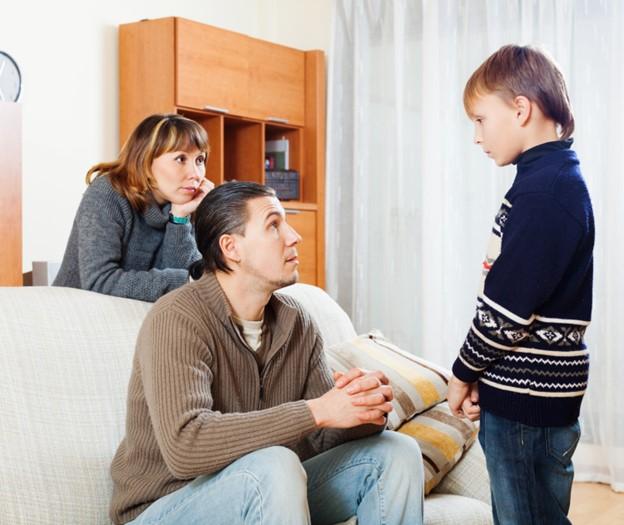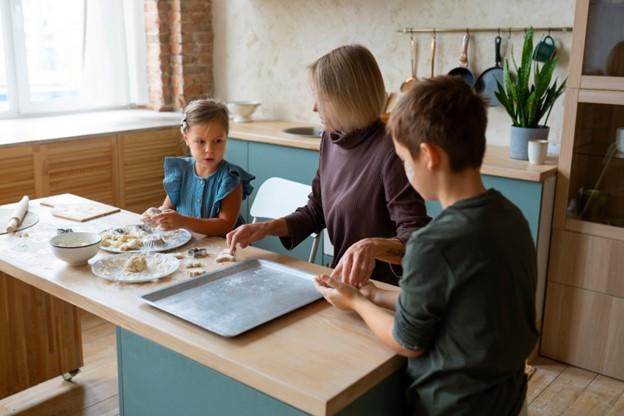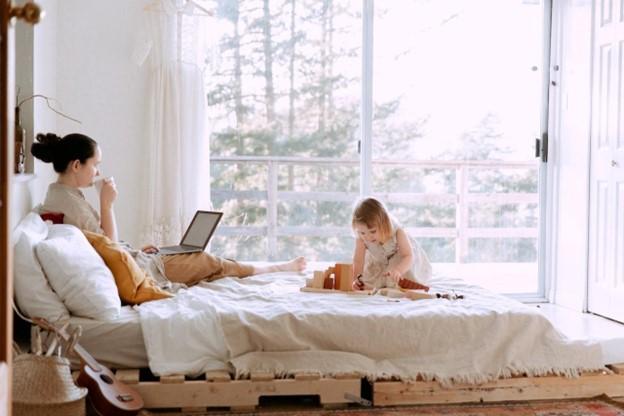Movies often portray parenting as a fulfilling life experience. But, they don’t show the challenges and the exhaustion that come with the perks of parenthood. While most parents roll with it glamorously, others, especially parents taking care of kids with special needs, experience “parenting burnout.” Know you’re not alone if you’re in this situation. Whether you’re a new parent or a seasoned pro, you should learn parenting burnout, its signs and symptoms, and how to address it.
Related Reading:
- 7 Script Examples of Talking to Kids about Disability
- 10 Ways to Be an Upstanders in Bullying
- 17 Script Examples of Talking to Parents with Disabled Children
- STOP Giving Me Compassion! 7 Tips on Talking to Parents with Disabled Kids
- 5 Life-Changing Lessons by Parenting Autism Kids
Table of Contents
What Parenting Burnout Is?
Parenting burnout happens when a parent experiences overwhelming physical, emotional, and mental exhaustion. This usually happens when caring for a loved one (in this case, their kids) for extended periods. Parent burnout can be caused by a variety of factors, including stress from juggling multiple responsibilities, lack of support, social isolation, financial pressures, and challenging parenting situations. Symptoms of parent burnout can include feelings of exhaustion, irritability, frustration, guilt, and detachment from one’s children. Burnout can also lead to physical symptoms, such as headaches, stomach problems, and sleep disturbances.

In the USA alone, 8% of parents report burnout. This affects daily functioning and interactions with their spouse and children. Don’t mix this up with the usual stress of Parenting. What happens here is that the parents have more stressors than coping mechanisms or resources. Unknown to many parents, there are acute and chronic stressors. Parents can quickly deal with sibling fights and toddler tantrums as they are acute stressors. These last for short periods.
Chronic stressors, on the other hand, last longer with no definite timeline at times. These include caring for kids with medical, mental, or developmental needs, including single parenthood and poverty. The longer a parent goes through these stressors without support, the higher the burnout intensity.
Soon enough, you’ll experience the four cardinal signs and symptoms of burnout.
While it’s normal for parents to experience stress and fatigue from time to time, parent burnout is a more severe and ongoing condition that can have negative effects on both the parent and the child. Parent burnout can lead to decreased quality of parenting, less emotional responsiveness to children, and reduced enjoyment of parenting. It can also increase the risk of depression, anxiety, and other mental health problems for both parents and children.
Related Reading:
- 9 Way to Help Stay at Home Mom Depression
- Being a Stay at Home Dad – 10 Benefits and Challenges
- 9 Pragmatic Ways to Be More Patient with Your Spouse
7 Parenting Burnout Signs and Symptoms
The signs of parent burnout can vary from person to person, but some common signs and symptoms include:
a. Feeling exhausted and depleted
Parent burnout can leave you feeling physically, mentally, and emotionally drained. You may feel like you can’t keep up with the demands of parenting, even when you’ve had enough sleep. Also, you no longer have the energy to do any activities or hobbies outside of Parenting. It’s like your day starts and ends with parenting your kids only, nothing more and nothing less.

b. Feeling irritable and easily frustrated
One cannot give from an empty cup. Since you’re not at your best, you can’t give your best Parenting to your kids. You prefer to become less involved with taking care of the children. Burnout can make it harder to deal with daily stressors and challenges, and you may find yourself becoming more easily annoyed or angry with your children. Burnout can also lead to physical symptoms like headaches, stomach problems, and muscle tension.

c. Losing interest in parenting
When you’re burnt out, you may find yourself feeling disconnected from your children and less interested in engaging with them. You may feel like you’re just going through the motions of parenting without feeling any real enjoyment or fulfillment. You may feel like you’re not doing enough for your children or that you’re not meeting their needs. These feelings of guilt and inadequacy can make burnout even worse. Burnout can make it harder to connect with others, and you may find yourself avoiding social activities or feeling less engaged in the relationships that matter to you.

d. Mood Changes
Since you constantly feel frustrated, every little mistake our little ones makes is a big issue. You quickly get angry at your kids, and you shout or end up spanking your kids to “transfer” that gnawing anger within you.
The ones mentioned above are just the main symptoms of parenting burnout. Help Guide lists all the other presentations for this condition if you want to be sure you’re not making things up.

8 Tips and Strategies to Cope with Parenting Burnout
If you are experiencing parenting burnout, there are several tips and strategies you can try to cope and manage the symptoms. Here are some suggestions:
a. Acknowledge your feelings
Parents are not robots, and we are human beings that can feel various emotions at a given time. However, we often disregard our own emotions and focus more on how our kids feel.

But Parenting is inherently a very emotional task. Our kids’ behaviors affect the way we respond to them. If our children do something good, we feel proud, happy, and so in love with them. We generally feel good, embarrassed, sad, or guilty if we do something terrible.
Regardless of our emotions, we should learn to accept them. It will then allow us to reflect and find the trigger of that emotion. We can then look at the situation objectively and allow us to find something funny or rewarding in it.
Journaling can help to give you a better perspective on things. It’s known to help relieve the stress of Parenting and help you release your emotions.
b. Schedule regular “Me” time within the week
Take time for yourself: One of the most important things you can do is to prioritize self-care. This can mean taking breaks throughout the day to do something you enjoy, such as reading, taking a bath, or going for a walk. Scheduling one’s “me” time can be tricky if you’re a stay-at-home parent with infants, toddlers, or preschoolers. It feels like you’re at their beck and call 24/7. But parents must get their “me” time to recharge.

Photo Source: gpointstudio on Freepik
If we continue to run on an empty emotional battery, we can’t regulate our emotions. Research shows parents are vital in showing children how to regulate emotions. If we keep yelling at them as we are cranky, how can you expect your kids to handle big emotions well?
So, plan your “me” time before the guilt takes over you. Ask a spouse, parent, or a close family friend to watch over the kids for at least an hour.
Do what activities come to mind for that specific time. Pampered Post has listed “me” time ideas for moms (dads, too) for you to choose from.
If you don’t have that luxury of time, have an earlier wake-up timer than the rest of the family. If you need to wake up at dawn, do it. Just take a refreshing nap by noon or early afternoon to recharge.
c. Set mini-breaks within the day
Parents devote all their energies to caring for their kids the minute they’re born. Once this happens, Christian Jarrett explains that changes happen in a parent’s brain, allowing them to attach healthily and care for their children. While this phenomenon is good, it saps the parent’s physical, mental, and emotional stores. Every time we attend to their needs, some of our “batteries” get drained. We continue caring for them for fear of being shamed for not being good parents.
If you can’t set aside 1 hour a week for some much-needed “me” time, carve out at least 5 minutes for a mental/emotional recharge. This way, your brain can “reset” a bit in case you feel frazzled already.
Productivity hacks like the Pomodoro technique and Pareto Principle can also help you set regular breaks. This way, you can create smaller chunks of activities and rest in between to recharge.

d. Plan daily and weekly routine
Taking care of kids can be chaotic, especially if you don’t have a routine established. This is because having a routine is grounding for both parents and children. Parents generally feel calmer once they can expect what happens in a day.

While having a perfectly planned schedule is excellent, unforeseen events will always happen. What you can do instead is to assign specific chunks of time for different activities.
For example, you all eat at the same time for breakfast and have an hour of outdoor activity or playtime after school. You can have dinner at 6 PM and bedtime from 8 PM onwards.
Assign certain days for specific tasks, errands, or activities for your weekly routine. Monday is grocery day, Tuesday is for laundry, and Friday is for movie night. This way, you can psyche yourself up a day before and prepare the things needed for those activities.
Weekends are usually the most challenging days for parents, and everyone in the house has plans for these days. If you’re at a loss on what to do, I have collated some tips on managing a family weekend schedule.
After all, you’re planning to fail if you fail to plan.
e. Create healthy boundaries
Boundaries are essential to foster healthy parent-child relationships, and it sets the line between what actions are acceptable and those aren’t.
But, as more parents shift to permissive Parenting, these boundaries are blurred. While it allows the children to make certain decisions without guilt, this is at the expense of their parent’s sanity. They end up making compromises more often, ultimately depleting their emotional tanks.

Worst, they lose control over the household, and this leaves the parents with no say over their children.
When you feel that everything’s out of control, re-assess and set reasonable limits with your children. Establish clear house rules. In this way, you and the kids can enjoy what you want to do while respecting each other’s feelings and needs. Consciously Parenting has several great examples of how healthy parent-child boundaries appear.
Once these boundaries are set, you schedule more time to do things you love. You can now eat healthier, sleep better, and exercise to recharge your emotional battery.
f. Learn the art of delegation
Delegating means asking for help from others. It sounds simple to do but is challenging for parents. Child Mind Institute cites that isolation and exhaustion are the common reasons parents experience burnout.

This is especially true for those families raising children with special needs. These kids often display challenging behaviors, so parents feel no one understands them. They’re afraid to ask for help because they think no one’s willing to care for their child for a couple of hours.
However, some people are willing to help you— they don’t know how. They will never know unless you ask. And the only way to do this is to communicate your needs directly.
If you need help watching over the kids to run some errands, ask your friendly neighbor. Call a babysitter if you need it. If you need to ask the kids to do some chores, give them clear instructions on what to do.
When you ask for help, it doesn’t spell weakness, and it’s simply acknowledging that you can’t do everything alone.
g. Limit social media use
Using social media is not entirely wrong, especially for parents. Though meetups and playdates are ideal ways of socializing, sometimes time isn’t simply on our side. You can join online parenting groups with social media’s help and gather valuable tips and support from parents from different countries.

But browsing through social media also drains us of energy. This happens when we use it to compare ourselves with other parents or constantly check for “updates.” Whatever we see lowers our self-esteem or makes us cranky. Worst, we become distracted parents.
While we can’t entirely remove social media usage today, we can limit our time on it. You have already planned your daily and weekly schedules, and plan as well when to check your phone for updates.
If placing your phone in a drawer or another room can help, do it. This way, you focus on spending time with your family uninterrupted by the constant “dings” from your phones.
h. Seek support for mental health
It’s normal not to enjoy some parts of our parenting journey. If you constantly find yourself tired or resentful of your roles as parents, you need professional help already.

Photo Source: Drazen Zigic on Freepik
But most parents don’t reach out to mental health professionals for fear of being judged as bad parents. Aside from the ongoing stigma associated with mental health checkups, parents also feel shame and a sense of failure once they go to a “shrink.”
On the contrary, seeking mental health support is a clear sign that you want to be a better parent. You’re making sure your kids don’t grow up experiencing mental issues themselves because you’re experiencing burnout.
Remember, your kids look up to you for the right thing to do. Once they see you’re being proactive in taking care of your mental health, they are more likely to do it themselves.
You can check out HHS’ resources for caregivers and Info About Kids for links to find professionals specialized in this field.
Ask Help If You Need!
Raising children is a whole village’s job. Even in the modern world, parents need not assume all the responsibilities of rearing children. With the help of technology and our community, parents can now access all the support they need to navigate this journey.
But you can’t start seeking help if you don’t admit to yourselves that you need it. Parents often put their family’s needs above their own they fail to see they’re drowning. Doing so affects not only your mental outlook but also how children attach to you.
So, the next time you feel exhausted more than average and want to quit parenting outright, stop and take a breather. Holler for help. You can’t parent your kids the way you want them if you don’t put on the oxygen mask on yourself first.
Remember, it’s important to take parenting burnout seriously and seek help when you need it. With the right support and strategies, it’s possible to manage burnout and find joy in parenting again.
About Me
Hi, there. I am Lin. Together with my husband and two kids, we live in the beautiful Netherlands in Europe. I am dedicated to self-development, creating quality time for the whole family, and fully supporting kids with their potentials with all I have learned from engineering, MBA, and 10+ years of working experience in the energy sector.


